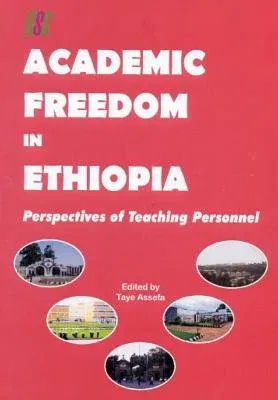Following the removal of the Derg regime from power in 1991, the
Ethiopian People's Revolutionary Democratic Front (EPRDF) swept to power
with the promise of restoring peace, tackling the country's chronic
poverty, and democratizing the political system. Among the social
sectors, Education received the highest attention. The recognition of
knowledge as a driving force of economic growth and social development
has been evident in the Federal Government's subscription to the EFA and
MDG initiatives and in its concerted efforts to reform the educational
system. In March 2004, the Ministry set up a Higher Education Systems
Overhaul Committee of Inquiry (referred to as the HESO Team) "to examine
and analyze the leadership, governance and management of the higher
education sector and to suggest ways that the higher education system
should be overhauled to enable it to better meet the development needs
of Ethiopia" (HESO 2004). The HESO Team's inquiry focused on issues of
governance, management and leadership, but not much on academic freedom,
nor did it indicate to what extent it is enjoyed by members of the
academic community, or what specific reforms are needed to facilitate
the full exercise of this fundamental right. Cognizant of this
situation, the Forum for Social Studies (FSS) launched, in mid-2006, a
research project titled "The Status of Governance, Academic Freedom, and
Teaching Personnel in Ethiopian Higher Education". FSS took UNESCO's
"Recommendation concerning the Status of Higher-Education Teaching
Personnel" as an international standard-making instrument that could
serve as a benchmark for reviewing the situation prevailing in Ethiopian
higher education institutions. Within this parameter, the main objective
of the FSS research project was to identify the regulatory framework,
institutional arrangements and established practices pertaining to
governance, academic freedom and conditions of service of
higher-education teaching personnel and assess these in terms of their
compliance with the relevant principles and norms enshrined in the 1997
UNESCO Recommendation. Based on case studies of major higher education
institutions, the project also sought to generate reliable and timely
information that would enhance public awareness and facilitate informed
policy intervention to improve the situation. A total of seven major
public universities and four private colleges were selected for the
institutional case studies. Altogether, over 555 teaching personnel and
2,110 students participated in the case studies and this publication
presents the findings of all the case studies and three of the
conference papers. The investigation in the case studies has sought to
generate data on the perceptions of students regarding the exercise of
academic freedom and the teaching-learning process, but this was mainly
to provide a comparative perspective. The primary focus of the study has
been on the status and perceptions of the teaching personnel.


